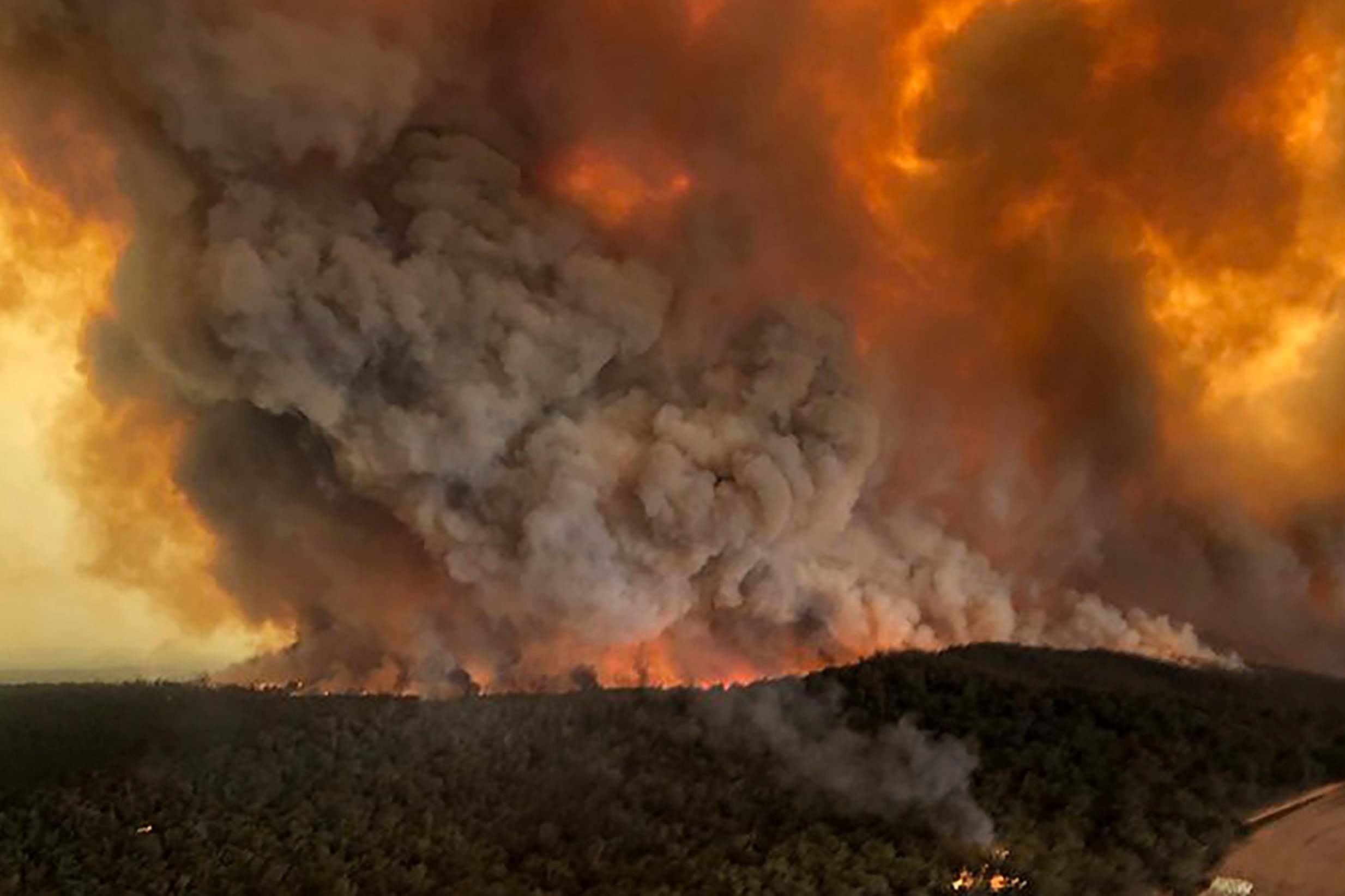Australia wildfires: Navy evacuates hundreds trapped on beaches as increasing temperatures threaten further destruction
Evacuation comes after tens of thousands of residents urged to flee as strong winds and hot weather exacerbate fires

Your support helps us to tell the story
From reproductive rights to climate change to Big Tech, The Independent is on the ground when the story is developing. Whether it's investigating the financials of Elon Musk's pro-Trump PAC or producing our latest documentary, 'The A Word', which shines a light on the American women fighting for reproductive rights, we know how important it is to parse out the facts from the messaging.
At such a critical moment in US history, we need reporters on the ground. Your donation allows us to keep sending journalists to speak to both sides of the story.
The Independent is trusted by Americans across the entire political spectrum. And unlike many other quality news outlets, we choose not to lock Americans out of our reporting and analysis with paywalls. We believe quality journalism should be available to everyone, paid for by those who can afford it.
Your support makes all the difference.Thousands more have fled their homes in Australia amid fears wildfires raging across the country will become even more devastating over the weekend.
Concerns over the more than 200 fires burning and warnings of extreme danger to come prompted mass evacuations across the country on Friday.
The country is bracing for the crisis to worsen on Saturday as 40C temperatures and strong winds are expected to have devastating consequences.
Mark Jones, chief officer of the South Australian Country Fire Service, said weather conditions were a cause for concern because some fires were still burning or smouldering.
He said: “The ignition sources are already there. There are millions of sparks out there ready to go if they break containment lines.”
The Australian navy was called in to rescue about 1,000 stranded tourists and residents from beaches in the town of Mallacoota on the Victoria coast on Friday.
Landing craft ferried people to the HMAS Choules offshore.
Evacuees waiting to board the ship described smoke and embers flying everywhere when the fires were at their worst.
“It’s just scary waiting,” Dani Barmeister told Channel Nine.
Darren Chester, MP for Gippsland, in Victoria, called it an “unprecedented mass relocation of civilians”.
Victoria premier Daniel Andrews declared a disaster across much of the eastern part of the state, which allowed the government to order evacuations in an area with 140,000 permanent residents and tens of thousands of holidaymakers.
In New South Wales, a state of emergency and a total fire ban have been declared.

State Rural Fire Service deputy commissioner Rob Rogers urged people not to delay leaving, noting four people in the state died in their cars as they made late attempts to flee.
“We need people to stay focused,” he said. “Tomorrow is not the day to drop your guard.”
The early start to Australia’s summer wildfires has already burnt about 5 million hectares of land, left at least 19 people dead, and destroyed more than 1,400 homes.
This week, at least 445 homes were destroyed on the New South Wales southern coast and dozens were burnt in Victoria.
Ten deaths have been confirmed in the two states this week, and Victoria authorities also said 28 people are missing.
Fires are also burning in Western Australia, South Australia and Tasmania.
Prime Minister Scott Morrison said he was inclined to cancel a scheduled trip to India later this month because of the wildfires.
In December, he cut short a family holiday in Hawaii in the face of public anger at his absence.
He made the remarks in Bairnsdale, Victoria, where he received a warmer welcome than he had in the wildfire-ravaged village of Cobargo, in New South Wales, a day earlier.
The prime minister cut short Thursday’s visit when locals yelled at him, called him an “idiot” and criticised him for the lack of equipment to deal with fires in the village.
A firefighter, who lost his home in the fires, was also captured on camera refusing to shake Mr Morrison’s hand.
A father and son died in a blaze while defending their home in the village on Monday.
The 19-month-old son of a volunteer firefighter who died while tackling bushfires received his father’s posthumous bravery medal during his funeral on Thursday.
Geoffrey Keaton and his colleague Andrew O’Dwyer were killed when a tree hit their fire truck, causing it to roll off the road near Buxton, southwestern Sydney, in December.

Volunteer firefighter Samuel McPaul, who was expecting his first child with his wife, was also killed in a separate incident when his truck rolled over in extreme winds.
Smoke from the wildfires has also choked air quality and turned daytime skies to near-nighttime darkness in the worst-hit areas.
Sydney University ecologist Chris Dickman told the Sydney Morning Herald nearly 500 million birds, reptiles and mammals are likely to have perished in New South Wales alone.
Frogs, bats and insects are excluded from his estimate, making the toll on animals much greater.
Additional reporting by agencies
Join our commenting forum
Join thought-provoking conversations, follow other Independent readers and see their replies
Comments